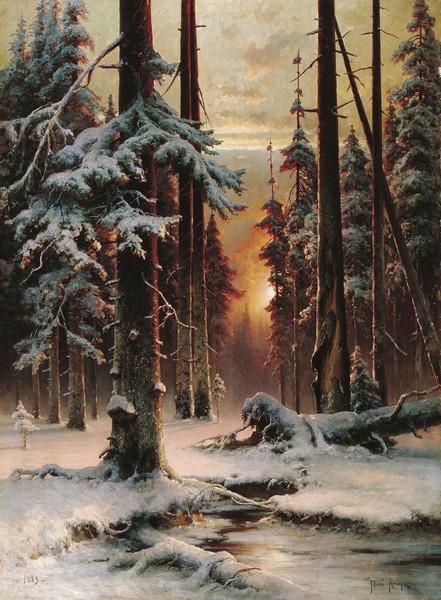
Let's go back to the series The Buch der Lieder and ten composers with one more poem from the Lyrische Intermezzo, no. 33, Ein Fichtenbaum steht einsam. [A spruce-tree stands alone]. Unlike most poems in this book, in which the poetic voice speaks in the first person, here there is an external observer. He tells us about this spruce that is alone in a distant place, in the North, surrounded by ice and snow. The narrator is external, but omniscient, and tells us that the spruce dreams of a palm tree that lives in a burning land, also alone and sad.
A first reading makes us think that Heine evokes two separate lovers who miss each other. Lovers can't meet, what's more tied to a place than a tree? But if any magical hand would help them and move one of them, it would soon die: the spruce wouldn't bear drought and the palm tree wouldn't tolerate cold weather. It appears that lovers are not only separate but belong to different, irreconcilable worlds. There is, however, (at least) a second reading of the poem: the spruce, a static version of the wanderer, dreams of leaving (and, as Orientalism hovers over the poem, dreams of a warm, sunny, distant, mysterious land). The omniscient narrator does not tell us clearly why the palm tree is sad, but its surroundings doesn't seem friendly. We might think they both yearn for what they don't have, and the poem is a beautiful version of the saying “the grass is always greener on the other side".
The best-known musical version of this poem was composed by Franz Liszt, but since the composer is represented on the list with Vergiftet sind meine Lieder, I chose one much less frequent, that of Edvard Grieg.
Among the nearly 150 songs Grieg wrote, twenty have German text and, among them, eight have Heine poems. Der Fichtenbaum is the last one; it's composed in 1893, when Grieg was fifty, and is included in the collection Elegiske Digte, Op. 58 [Elegiac Songs] This collection is also the last with poems by John Paulsen, Grieg's most musicalized poet: seventeen of his songs have verses from his friend Paulsen. By the way, Wagnerian readers will like to know that both friends travelled together in 1876 to the first Bayreuth Festival and were enthusiastic about the Tetralogy. Anecdotes aside, little is known about Mr Paulsen; even books of Norwegian literature don't speak much of him. His early works seem to have been well-received, and even Henrik Ibsen spoke of him with admiration; it also seems that he failed to live up to people's expectations.
The second of the Elegiac Songs is På Norges nøgne fjelde, the Norwegian version of Ein Fichtenbaum steht einsam. According to several authors, Paulsen's translation is excellent. The metric is so faithful to the original that, although the songs were originally published in Norwegian, Grieg's catalogue of works also includes the German version and the few recordings are in both languages. Many sources state these songs are among the composer's weakest. Maybe it's true, I don't know. No doubt that På Norges nøgne fjelde/Der Fichtenbaum has nothing to do with the exuberance of many better-known songs such as Ein Traum, but I like its sobriety, which makes me think of silent, solitary forests. Would you share what do you think about this piece?
As it's such a short song, I suggest we hear both versions, with German and Norwegian texts; this way, we enjoy Heine's verses and Paulsen's good work. Performers of På Norges nøgne fjelde are Monica Groop and Roger Vignoles and those of Der Fichtenbaum, Harald Bjørkøy and Jens Harald Bratlie.
Ein Fichtenbaum steht einsam
Im Norden auf kahler Höh’.
Ihn schläfert; mit weißer Decke
Umhüllen ihn Eis und Schnee.
Er träumt von einer Palme,
Die, fern im Morgenland,
Einsam und schweigend trauert
Auf brennender Felsenwand.
A spruce-tree stands alone
in the north, on the bare heights;
it slumbers; in a white blanket
it is surrounded by ice and snow.
It dreams of a palm tree
which, far-off in the land of the morning,
grieves, alone and mute,
on a burning, rocky wall.
(translation by Emily Ezust)
På Norges nøgne fjelde
en gran så ensom står.
Den slumrer; et snehvidt lagen
omkring den Vinteren slår.
Den drømmer om en palme,
der fjernt i morgenland
sørger forladt og stille
i ørkenens hede sand.


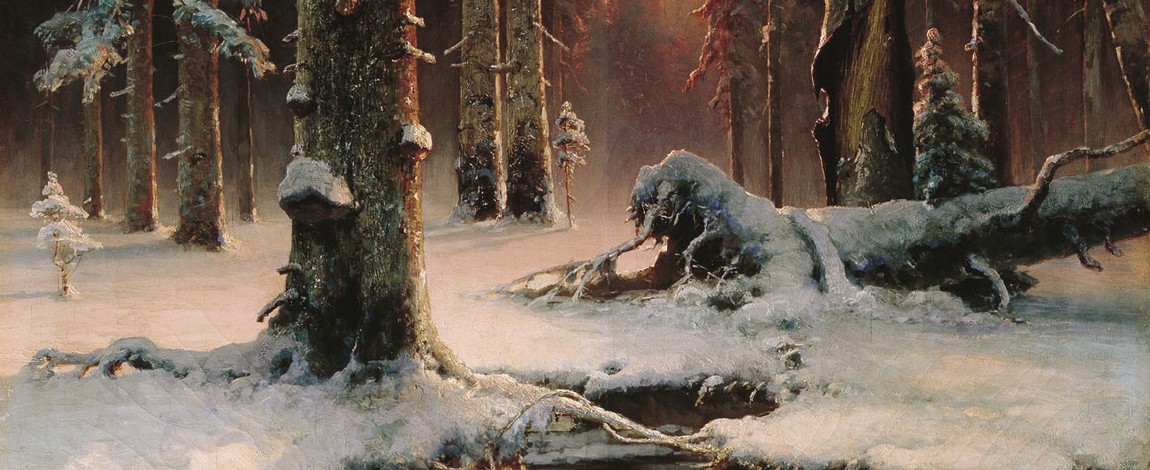
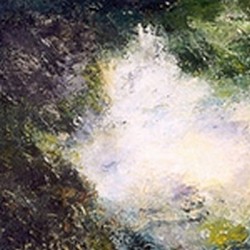 Haugtussa...
Haugtussa...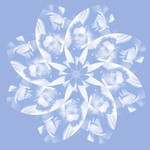 This...
This...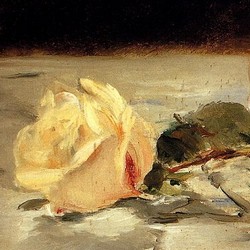












Comments powered by CComment